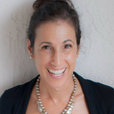
Summary: Trauma, PTSD, & OCD can become closely intertwined as you rebuild your life after a tragic event. Let's say, you went through a traumatic experience and now you have PTSD. Suddenly, you find yourself with behaviors that would seem odd to others but for you, seem to be a natural way of life that makes you feel better and safer. Friends may voice their opinions that you have OCD, and although you may know it’s true, you aren’t sure why or where it came from. Guy Oberwise from Timberline Knolls Residential Treatment Center joined me to discuss how and why OCD can develop after trauma and along with PTSD. Guy explained: what is Obsessive Compulsive Disorder how it works and what drives it the role of fear why the trauma, OCD and PTSD are linked, plus how they feed between one another (and become obstacles in your healing) options for treatment how long recovery takes About my guest: Guy Oberwise is The Director of Primary Therapy at Timberline Knolls Residential Treatment Center. He specializes in mood and anxiety disorders and the treatment of OCD. As a member of the Timberline Knolls Clinical Development Institute, Guy offers presentations across the country on co-occurring disorders. Guy’s 20 plus years of broad-based background includes clinical and organizational psychology, business consultation, behavioral change management, and career development and training. Throughout his career, he has provided counseling and training within numerous schools, treatment centers, human resources departments and employee assistance programs on a variety of topics such as stress management, alcohol and drug addiction, drug free workplace, customer service, leadership development, self-esteem, depression and more. Guy is a licensed clinical social worker, specializing in the treatment of eating disorders, substance abuse recovery, and mood disorders. He graduated from Beloit College in Beloit, Wisconsin with a Bachelor of Arts in clinical psychology and received his Master’s degree from Loyola University in Chicago in clinical and occupational psychology. He is a member of the National Association of Social Workers, the International Association of Eating Disorder Professionals, and the International OCD Foundation.
